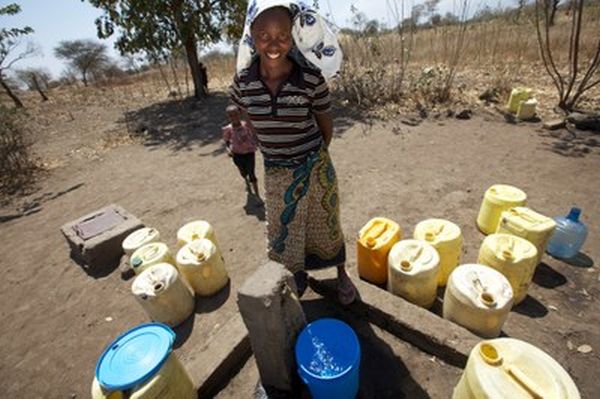

WEEK 5 - Normative content on human right to water in Africa
By Dr Rogate Mshana
Dr Mshana, a renowned economist is a former staff member of World Council of Churches responsible for its programme on Poverty, Wealth and Ecology, later known as the Economy of Life. He is currently working as a consultant on Economic Justice for the Council for World Mission and based in his home country, Tanzania.
In the following reflection, he deals with the 5 normative contents of human rights framework on water in the context of Africa. He further relates water as a key element to achieve food security, health security and gender justice.
Introduction
Jesus said, “I am thirsty.” (John 19:28)
Clearly, what we read from the Gospel according to John, is the need of Jesus to be given water, but instead, verse 29 indicates, “A jar of vinegar was there, so they soaked a sponge in it, put the sponge on a stalk of the hyssop and lifted it to Jesus’ lips.” This was an issue of water justice.
Major questions that need to be raised today are: In what way do African states and regimes take seriously the issue of providing safe water to their populaces? How much is actually budgeted for water in Africa?
As a basic need for any human being and all living things, water is a substance that no person should be deprived of. The normative content on human rights in Africa is a topic that briefly examines accessibility, affordability, acceptability, safety and quality of water in Africa.
Water justice in Africa
Sub-Saharan Africa has the largest number of water-stressed countries on the planet where an estimated 800 million people live. Of these people, some 300 million live in a water-stressed environment. According to findings presented at the 2012 Conference on "Water Scarcity in Africa: Issues and Challenges", it is estimated that by 2030, 75 million to 250 million people in Africa will be living in areas of high water stress. This will likely displace anywhere between 24 million and 700 million people as conditions become increasingly unliveable. As African states continue to design development programmes, it is essential that they put water first in their development budgets. So far, investment in water is still not sufficient. If this is not done as a matter of urgency, we shall certainly experience a situation of water refugees and displacement in Africa. Water justice should also be enshrined in constitutions, following the example of Bolivia.
Water Security means food security
Like food security, we should also speak about water security to ensure that all people in Africa have access to clean and safe water. Since water is part of the public domain, African governments should subsidize it to ensure its affordability to all people.
As I write this article, many cattle have died due to water scarcity in grazing zones in my country while plants are drying up, threatening food security. So, water first should be the mantra, because it is the backbone of other sectors such as agriculture and industries. Without water, life dies. Read further…